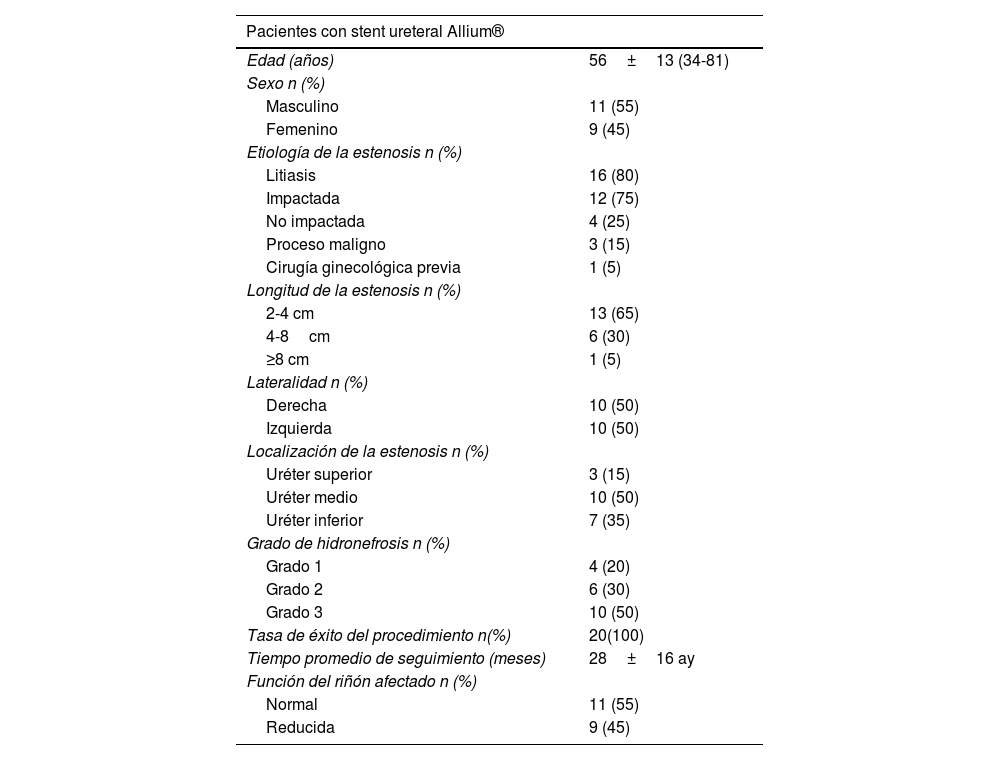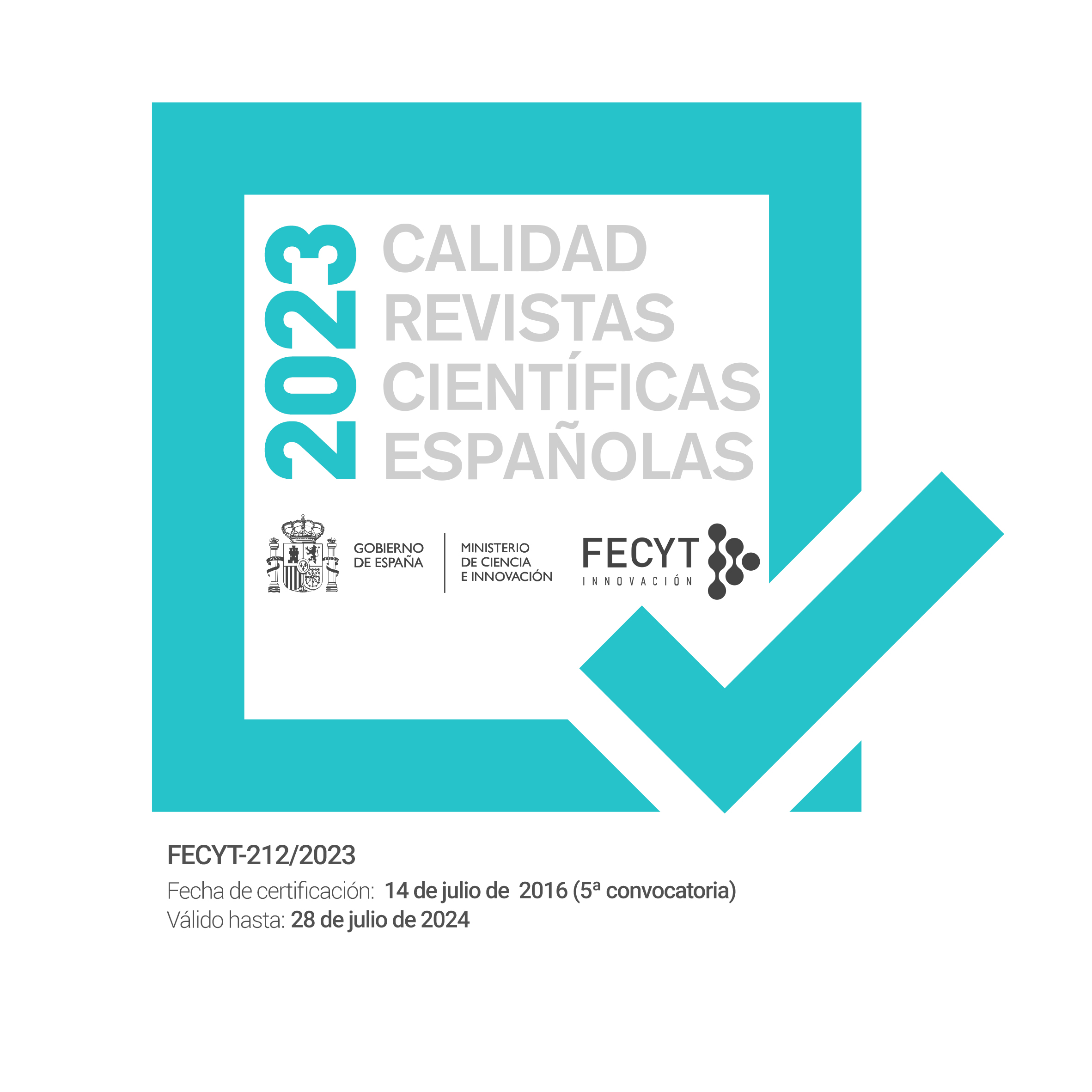La estenosis ureteral es una condición crónica que puede provocar la obstrucción del flujo urinario de la unidad renal comprometida, con la consiguiente pérdida de función renal. Los tipos de tratamiento pueden clasificarse en 2categorías principales: endourológicos y reconstructivos. Nuestro objetivo fue investigar la eficacia y seguridad del stent ureteral autoexpandible Allium®, cuyo uso en el tratamiento mínimamente invasivo de la estenosis ureteral se ha extendido en los últimos años.
Materiales y métodosEl estudio incluyó a 20 pacientes a los que se colocó un stent ureteral autoexpandible entre 2017 y 2021. Se registraron y evaluaron de forma prospectiva sus características clínicas y demográficas, los detalles del tratamiento, las complicaciones perioperatorias y postoperatorias y su tratamiento, y los hallazgos durante el seguimiento.
ResultadosLa etiología incluyó urolitiasis en 16 pacientes (80%), neoplasia en 3 pacientes (15%) y cirugía ginecológica previa en uno (5%). La obstrucción del stent fue la complicación más frecuente en 3 pacientes (15%), seguida de la migración del stent en 2 (10%). Se continúa el seguimiento de 15 pacientes sin obstrucción ni complicaciones relacionadas con el stent. El periodo medio de seguimiento fue de 28±15,7 meses.
ConclusionesEl stent ureteral constituye una alternativa eficaz y segura para el tratamiento mínimamente invasivo de la estenosis ureteral, con unas tasas de complicaciones aceptables y un manejo sencillo de ellas.
Ureteral stricture is a chronic condition that can result in the obstruction of urinary drainage from the affected renal unit, leading to loss of renal function. reatment methods can be categorized into 2main headings: endourological and reconstructive procedures. We aimed to investigate the efficacy and safety of the self-expandable Allium® ureteral stent, which has been used in the minimally invasive treatment of ureteral stenosis in recent years.
Materials and methodsTwenty patients who were applied Allium® ureteral stent between 2017-2021 included in the study. The demographic and clinical characteristics of the patients, the details of the treatments applied to the patients, the perioperative and postoperative complications, the treatments applied for the complications and the findings in the follow-up were recorded and evaluated prospectively.
ResultsEtiology included urolithiasis in 16 patients (80%), malignancy in 3 patients (15%), and a previous gynecological operation in one patient (5%). Stent obstruction was found to be the most common complication in 3 patients (15%). Stent migration was the second most common complication in 2 patients (10%). Our follow-up continues with 15 patients without stent-related complications and stent obstruction. The mean follow-up period was 28±15.7 months.
ConclusionsAllium ureteral stent is an effective and reliable method in the minimally invasive treatment of ureteral stricture with complications seen at acceptable rates and ease of treatment in the management of complications.













